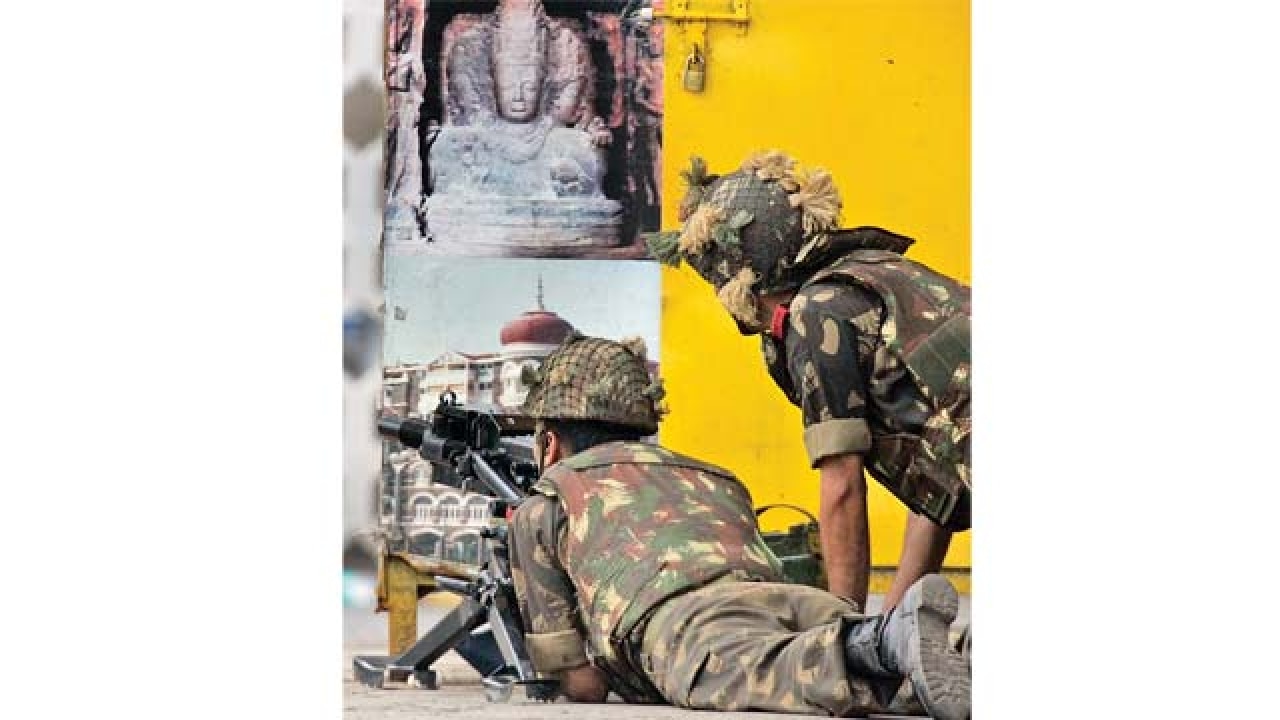
All the men in my house work in the Armed Forces. Lack of education facilities in far-flung areas ensured that we lived apart from our dad for good part of our lives. Our mother single handedly raised me and my brother. Now my husband and brother are also in the forces — a fighter pilot, my brother is an infantry soldier respectively. My husband faced an aircraft crash recently. The phone call that I received informing me about the incident and the numbness I felt following that is difficult to put in words. He survived it unscathed only by matter of seconds. At that time the people in unit—other officers and their wives—played the role of being the rock-solid support system for us. In the night, the whole unit joined us to celebrate his ‘birthday’. My brother, who is 27, is preparing to go for his two years’ tenure of field posting whereby he will be separated from his wife and will be posted to an insurgency prone area. They have been in a relationship for eight years where they saw each other only few times and have stayed together for only a year post marriage. She does not put her predicament to words, but I know she is bracing for a life where a phone call from satellite phone would be the most awaited event of her daily life. In many leading armed forces the posting chart of its personnel is prepared 15-20 years in advance so that they can plan their wives’ career and children’s education accordingly. The uncertainty here means the wives have to give up their flourishing careers to join their husbands.
Deepa Sahni (name changed),
wife of a senior Air Force officer. She works in New Delhi
Mitali Roy (Name Changed) Wife of a senior officer posted in Macchil.
The Army has a strong internal system in the form of the Army Wives Welfare Association (AWWA) and all the Army wives become part of this. Usually the family has an option to stay with the officer in peace stations, and in designated areas in conflict areas. On field stations, there is a methodical way in which interactions are held between Army wives with families of other officers and soldiers. A Commander’s wife will be given responsibility for welfare of a particular unit and to look after the family’s needs. These platforms helps us to bond, know and resolve the problems of other families.When I got married, my husband was a Captain posted in Udhampur in 1994 and militancy was at its peak. I would hear all sorts of hair-raising tales, especially the foreign militants, like the gouging of the eyes of the soldiers and killing brutally. In times of combat, anything can happen. But it becomes normalised after a time and we learn to live with our apprehensions. In times of crisis or an attack, we brace ourselves first and talk to other wives. If something happens to my husband, I know I will have their solidarity. Whatever help we need comes from the structure of AWWA. A few years ago, when communication was made on landlines, the situation was fragile. Terrorists were on the move in the Valley and officers were gone for months with families left behind at the station. We used to get lot of random phone calls and were told to not answer calls inquiring where our husband has gone, where he is posted, which road he has taken, as they were from ISI and Pakistani agents. While an officer’s wife may be adept at dealing with such situations, a wife of a jawan from a rural area may not, so it becomes necessary to help them.
Seema Chavan (Name Changed) Wife of a young Captain posted in Kashmir.
An Army wife provides a strong support system to her husband morally and emotionally. In a civilian marriage, family life is managed by both husband and wife, but in a military marriage it falls upon the officer’s or the soldier’s wife to look after the family and children. Not just our own family, but also other troops’ families. After marriage when we come to a station for the first time, we are welcomed in the military family life and we become part of the (AWWA) by default. Through this we are detailed responsibility for take care of company’s families. We create awareness and assist them in any problems they may have, from financial management, health, accommodation, marital discord to their children’s education. We organise weekly, monthly meetings and stay in close contact.
In a combat situation, our first job is to stay strong and keep our morale high. Even if we are scared in a difficult conflict situation, we can’t show weakness. In case of a terror attack or any security related crisis, we are the first contact for assuring the family of that soldier or officer. We get in touch with them through phones or personally meet them if they are residing in the station.
Support and understanding from public/government: Indian civilians have love, respect and faith in the Army. But at times hyper reaction needs to be avoided. People forget what is the real situation on the ground and most times don’t actually know what the requirements of the army is. Post the Uri attack, there was a lot of noise about war with Pakistan. We forget that the cost of war is to be paid in human life and the first casualty is the soldier at the border. At such times, I stay calm and react after assessing the actual situation on the ground, instead of reacting to public opinion.